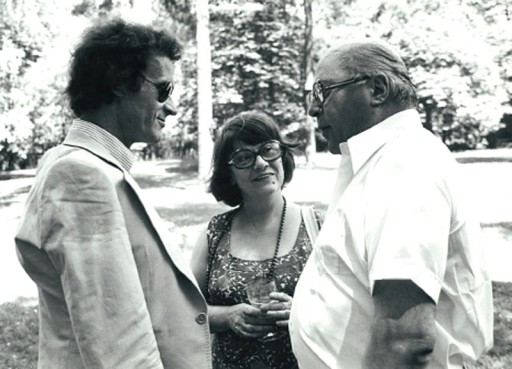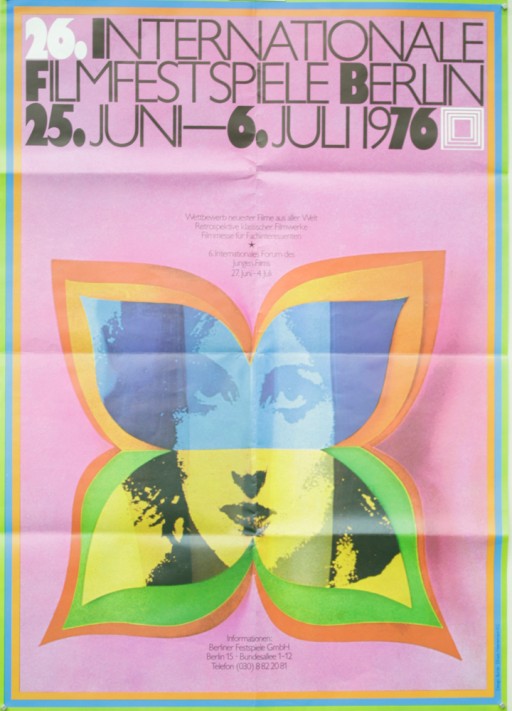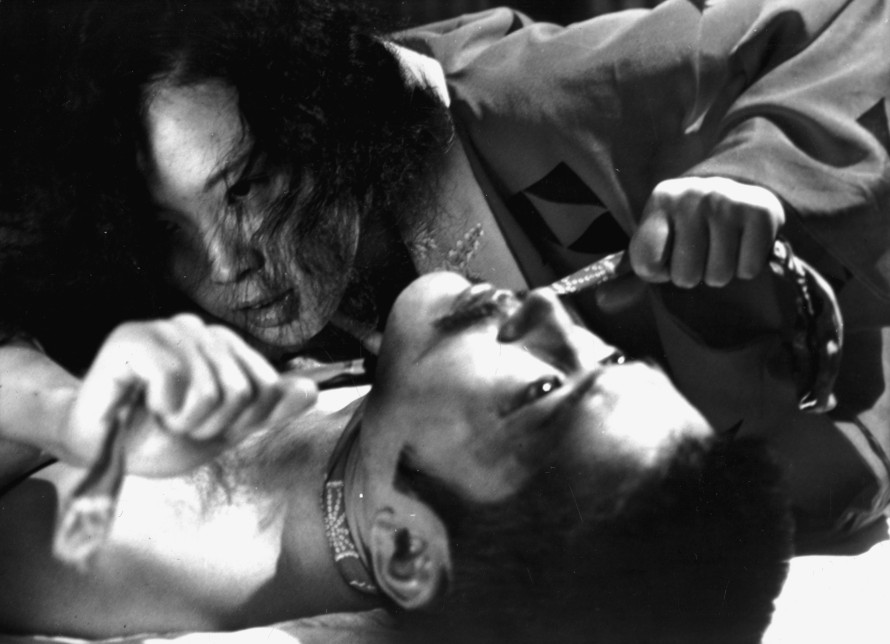1976
26th Berlin International Film Festival
June 25 – July 6, 1976
"Such nice little houses and such nice little streets. Strange that with some something is wrong." – In the "Frankfurter Allgemeine Zeitung", film critic Brigittte Jeremias notices the critical reflexion of the American way of life in most US films.

Press reception at Hotel Gehrhus: Wolf Donner, Mrs. Zanzig and Valeri Lednev from Moscow
The Competition of the 1976 Berlinale was more international than it had ever been: Films from Japan, the People’s Republic of China, Iran, Mexico, Brazil, Venezuela, Italy, the Netherlands, Great Britain, France and most of the Eastern bloc states underscored the Berlinale’s claim to represent international filmmaking in all its facets.
Critical reflexion in major US entries
As a result, the strong showing of American cinema was not, unlike in previous years, interpreted as a hegemonic threat. The American films this year were too complex, too self-critical for that. American cinema had held back conspicuously in recent years, and now that the Berlinale was open to films from the Eastern bloc, people were eager to see what it had to offer. It was the bicentennial anniversary of the American Declaration of Independence, one year after Watergate, and the final phase of the Vietnam War. Everyone was talking about the United States, and the most prominent criticism often came from American intellectuals and artists themselves.

George Stevens Jr.’s documentary America at the Movies, an enquiry into the image of America in American films, was screened in a festival matinee. While this film tended to treat the wealth of legends surrounding the “American way of life” in a more affirmative way, Robert Altman’s Buffalo Bill and the Indians or Sitting Bull’s History Lesson, Alan J. Pakula’s All the President’s Men, and, in the Forum, Alvin H. Goldstein’s The Unquiet Death of Julius and Ethel Rosenberg and Charlie Chaplin’s A King in New York were uncompromising reckonings with American myths and images of itself. The genocide of North America’s native inhabitants, the Watergate scandal and McCarthyism still stand today for the hardly homogenous identity of a country that, on the other hand, rightfully prides itself as being the cradle of modern democracy.
In years to come, the Berlinale would again and again serve as a welcome platform for American myths and their deconstruction. The fissure was already visible in the 1976 awards ceremony, when Robert Altman used his Golden Bear to voice protest against his producer Dino de Laurentiis. De Laurentiis had provided the Berlinale with the longer version of Buffalo Bill authorised by Altman, but it was the shorter version the director did not agree with that was to be distributed. The jury took a stand by expressly awarding the Golden Bear “only for the uncut original version shown in Berlin”.

Still from Ai no Corrida which was censored and roused a scandal
The case of Ai No Corrida sets off a debate on censorship
It was in the Forum though that the scandal film of the festival was shown; there too the issue was censorship and artistic freedom. Nagisa Oshima’s masterpiece Ai no Corrida | In the Realm of the Senses was confiscated from the projection room during the premiere by the Criminal Investigation Police Department. The story of a couple that is sexually captivated by each other, and in which the man even lets the woman mutilate him, had already provoked sensational polemics in the popular press in the run-up to the Berlinale.
The confiscation was followed by a viewing of the incriminating film at the local court in Tiergarten, which resulted in a screening ban. Since the confiscation had taken place on the basis of the penal code (“public screening of a pornographic film”), the Forum management now stood accused of a crime. The inquiry was not called off until November. In the meantime there were countless letters of protest and expressions of solidarity from filmmakers around the world, attempts at mediation by the Berlin senate, interpretive skirmishes between lawyers – as well as a secret screening of the film at the Academy of Arts with a replacement copy listed under a fake title.
This was an unprecedented occurrence in the history of Berlin. It set off a debate on censorship and damaged the reputation of the festival and the city. The Forum in general had a tough time of it this year: Even the short film Filmfestspiele Berlin, specially produced as a festival profile, had provoked the protest of Ulrich Gregor. The film, he claimed, contained “image and sound montages that represent a deliberate defamation of a part of the Berlin Film Festival, namely the International Forum for New Cinema.” The internal harmony of the previous years was still unstable.